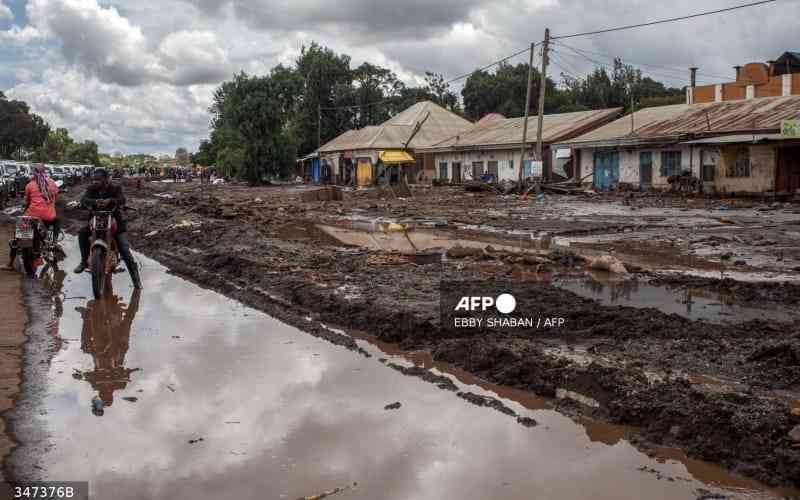By Peter Opiyo
Kenya scores poorly in uplifting the living standards of its citizens, according to a United Nations report.
Surprisingly, Libya is the best ranked in Africa, occupying position 64 of 187 countries studied in the human development world survey. The report released Thursday ranks Kenya 143rd in the world.
The second placed is Tunisia (94 in the world), Algeria (96), Gabon (106) and Egypt (113). Libya’s and Tunisia’s good performance came as a surprise given the political upheavals that rocked the North Africa countries.
United Nations Development Programme Resident Representative Aeneas Chuma, who presented the findings, termed the good performance of Libya and Tunisia as "ironical but interesting".
Norway is ranked the best in the world while Democratic Republic of Congo takes the wooden spoon at position 187. United States is at position four while the UK is ranked 28th.
Poor performance
The UN defines human development as the expansion of people’s freedoms and capabilities to lead lives that they value and have reason to value.
Despite Kenya’s poor performance it is the highest ranked in East Africa followed by Tanzania (152), Uganda (161), Rwanda (166) and Burundi (185). But Planning Assistant minister Peter Kenneth, who launched the report in Nairobi, said Kenya’s position in East Africa is ‘not enviable’ and that she should compare herself with Norway.
"We need to compare ourselves with Norway by looking at what it has done best to be number one," said Kenneth.
The report, Sustainability and Equity: A Better Future for All, points out that the poor are most affected by environmental degradation and that the world’s 2.6 billion continue to cook with firewood, straw, charcoal or dung.
The report underscores the importance of access to electricity as a means of poverty alleviation. Some 1.5 billion people, according to the report, lack access to electricity.
"Electrification can reduce poverty by increasing productivity, employment and time spent in school and reducing environmental pressures," states the report.
The report recognises Kenya’s efforts in reducing dependence on fuel wood by innovating improved stoves. This, UNDP says, "has reduced fuel wood requirements some 40 per cent in parts of Kenya".
Enviromental protection
Stay informed. Subscribe to our newsletter
Conservation of the environment is one of the issues that the UN considers very important in sustainability of human development, and the report recognises the move by Kenya to include environmental protection in its Constitution.
"Kenya’s 2010 Constitution grants the right to a clean environment and requires the Government to maintain its natural resources," states the report.
The report points out that the disadvantaged group continue to bear the greatest repercussions of environmental deterioration yet they contribute very little to global climate change.
"In many cases the most disadvantaged people bear and will continue to bear the repercussions of environmental deterioration, even if they contribute little to the problem," the report documents.
Biggest price
Developing countries have often accused developed states of contributing to the global climate change yet it is the former that pays the biggest price by experiencing low and unreliable rainfall affecting agricultural production and adversely impacting on their livelihoods.
"The average UK citizen accounts for as much greenhouse gas emissions in two months as a person in low human development index country generates in a year," the report points out.
The report recommends transformational effort to scale up efforts to slow or halt climate change.
"To facilitate both equitable access and efficient use of international financial flows, this report advocates empowering national stakeholders to blend climate finance at the country level," the report proposes.
 The Standard Group Plc is a
multi-media organization with investments in media platforms spanning newspaper
print operations, television, radio broadcasting, digital and online services. The
Standard Group is recognized as a leading multi-media house in Kenya with a key
influence in matters of national and international interest.
The Standard Group Plc is a
multi-media organization with investments in media platforms spanning newspaper
print operations, television, radio broadcasting, digital and online services. The
Standard Group is recognized as a leading multi-media house in Kenya with a key
influence in matters of national and international interest.
 The Standard Group Plc is a
multi-media organization with investments in media platforms spanning newspaper
print operations, television, radio broadcasting, digital and online services. The
Standard Group is recognized as a leading multi-media house in Kenya with a key
influence in matters of national and international interest.
The Standard Group Plc is a
multi-media organization with investments in media platforms spanning newspaper
print operations, television, radio broadcasting, digital and online services. The
Standard Group is recognized as a leading multi-media house in Kenya with a key
influence in matters of national and international interest.








